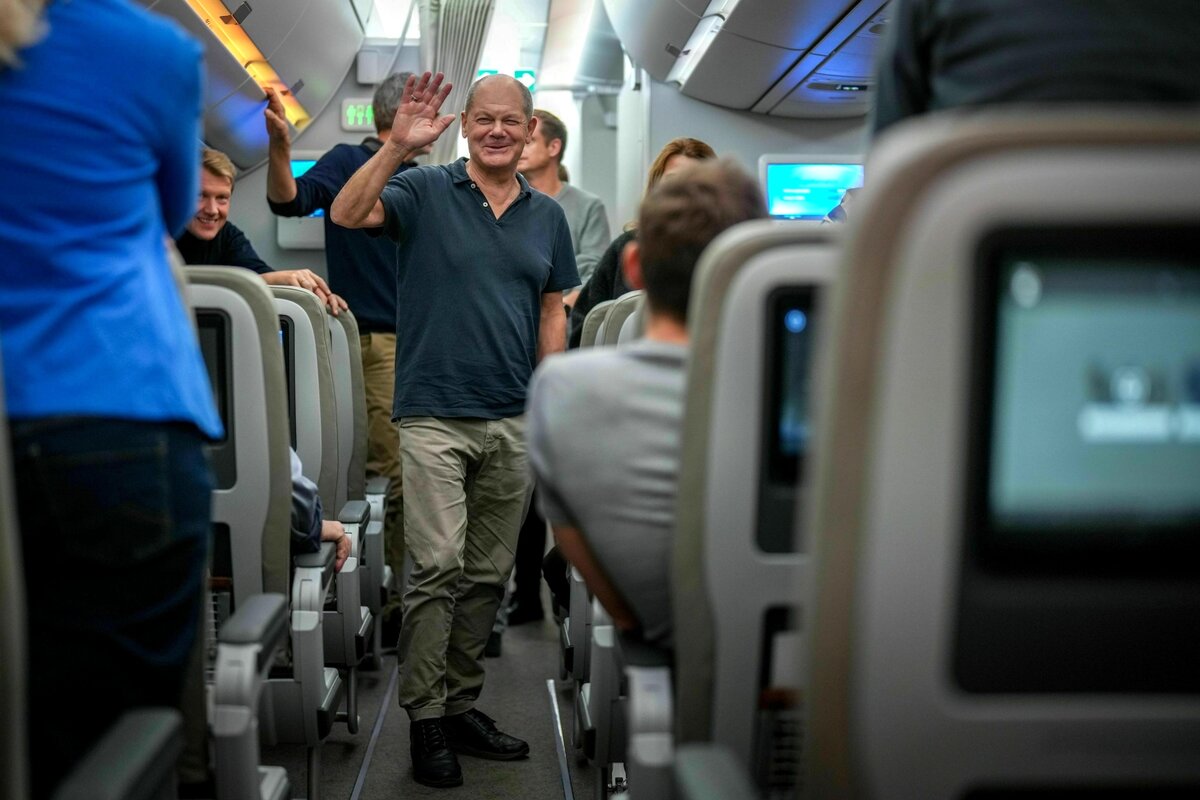Table of Contents
- 1 Munich, Rottach-Egern, Füssen – Gössl shops can be found in top locations
- 2 Millions in loans due to the pandemic: Is the bank demanding them back prematurely?
- 3 Gwandhaus in Salzburg sold to Red Bull heirs – rental agreement runs until 2029
- 4 What lessons can be learned from Gössl’s handling of its financial crisis regarding the importance of diversifying revenue streams in the retail industry?
PressSplit
These girls go swimming in traditional costumes. Gössl had organized the “Dirndl Flight Day” at Lake Wolfgang for years. © imago stock&people
The slump in the textile trade doesn’t stop at dirndls and lederhosen. The Salzburg traditional costume manufacturer Gössl is in financial difficulties. The traditional company, which also has numerous stores in Bavaria, will probably file for bankruptcy in December.
Green awnings protect the fine costumes in the shop window. The white lettering “Gössl” is emblazoned on it. The shops of the Salzburg traditional costume manufacturer can only be found in top locations in Bavaria: on Munich’s Residenzstraße, for example, or Rottach-Egern, address Seestraße 1. The high-priced dirndls, lederhosen and jackets are also sold in Regensburg, Bad Reichenhall, Traunstein and Füssen Austria sold. But there are obviously tough years behind the company. That’s why managing director Maximilian Gössl invited people to a press conference in Vienna on Monday. Your title: “Gössl before the end”.
 The Gössl store on Munich’s Residenzstrasse. © Oliver Bodmer
The Gössl store on Munich’s Residenzstrasse. © Oliver Bodmer
Gössl is the third generation to run the company. His grandparents Grete and Leopold founded it in 1947 with just one blouse. It was no longer possible to repay loans worth millions, he explained, blaming the pandemic, politics and Bank Austria for this. Before Corona, the company was in the black. With each lockdown, however, heavy losses would have accumulated. “The group is expected to have sales of 15 million euros this year and the budget figures for 2025 to 2027 show positive contribution margins,” he said. Nevertheless, you will probably have to file for bankruptcy in December.
Munich, Rottach-Egern, Füssen – Gössl shops can be found in top locations
Gössl employs 113 people and has branches and franchisees at 80 locations in Europe. The last published balance sheet from 2022 shows a loss of three million euros. In addition, liabilities amounting to 8.2 million euros are recorded. According to the federal government’s transparency portal, 5.5 million euros were received during the pandemic, as the APA reports.
Austria Wirtschaftsservice Gesellschaft, the development and financing bank of the Republic of Austria, stepped in with guarantees for bridging loans. These guarantees only apply if a company goes bankrupt. According to ORF, Gössl is therefore making serious allegations: the bank would deliberately send her into bankruptcy in order to be able to access those state guarantees. Because she demands the millions in loans long before the deadline expires.
Millions in loans due to the pandemic: Is the bank demanding them back prematurely?
 Managing director Maximilian Gössl in front of the Gwandhaus. © Private
Managing director Maximilian Gössl in front of the Gwandhaus. © Private
“Negotiations with the bank about extending the term or rescheduling have failed,” said restructuring expert Gerald Zmuegg, whom Gössl has brought in for support, yesterday. “At the beginning of September, the bank made the bridging loan and another working capital loan in the amount of 360,000 euros due early without any emergency. This resulted in the loss of important liquidity.”
An extension of the repayment period by the legislature would also help.
At the same time, she blocked liquid assets from operational business amounting to 400,000 euros. Zmuegg again called on the bank to extend the loan term and also addressed the state: “An extension of the repayment period by the legislature would also help.”
Gwandhaus in Salzburg sold to Red Bull heirs – rental agreement runs until 2029
Gössl’s headquarters are in the Gwandhaus in Salzburg. Gössl himself was once the owner, but in 2019 the building was sold for 24 million euros. Red Bull heir Mark Mateschitz has since bought it. The rental agreement for Gössl ends in 2029. Despite the current turbulence, the shops will remain open. (sco)

What lessons can be learned from Gössl’s handling of its financial crisis regarding the importance of diversifying revenue streams in the retail industry?
Based on the article, here are some potential discussion questions about Gössl’s financial crisis:
1. What factors contributed to Gössl’s decline in the textile trade industry, and how has the company responded to these challenges over the years?
2. How has the COVID-19 pandemic impacted Gössl’s business model, and what measures did the company take to mitigate the losses?
3. Is the decision by Bank Austria to demand repayment of millions in loans premature, given that Gössl alleges that it’s done so to access state guarantees? What could be the potential consequences of such actions by banks during times of crisis?
4. What role do government programs aimed at supporting businesses during the pandemic play in situations like Gössl’s, and how can they be improved or strengthened in the future?
5. As a traditional company in the era of fast fashion and online shopping, how has Gössl maintained its market share and relevance in the face of increasing competition? Are there any unique strategies or approaches that have worked particularly well for them?
6. With its stores located in top locations across Europe, including Munich and Salzburg, how does Gössl differentiate itself from other traditional fashion retailers in terms of branding and customer experience? Are there any best practices or lessons that other companies could learn from their approach?

